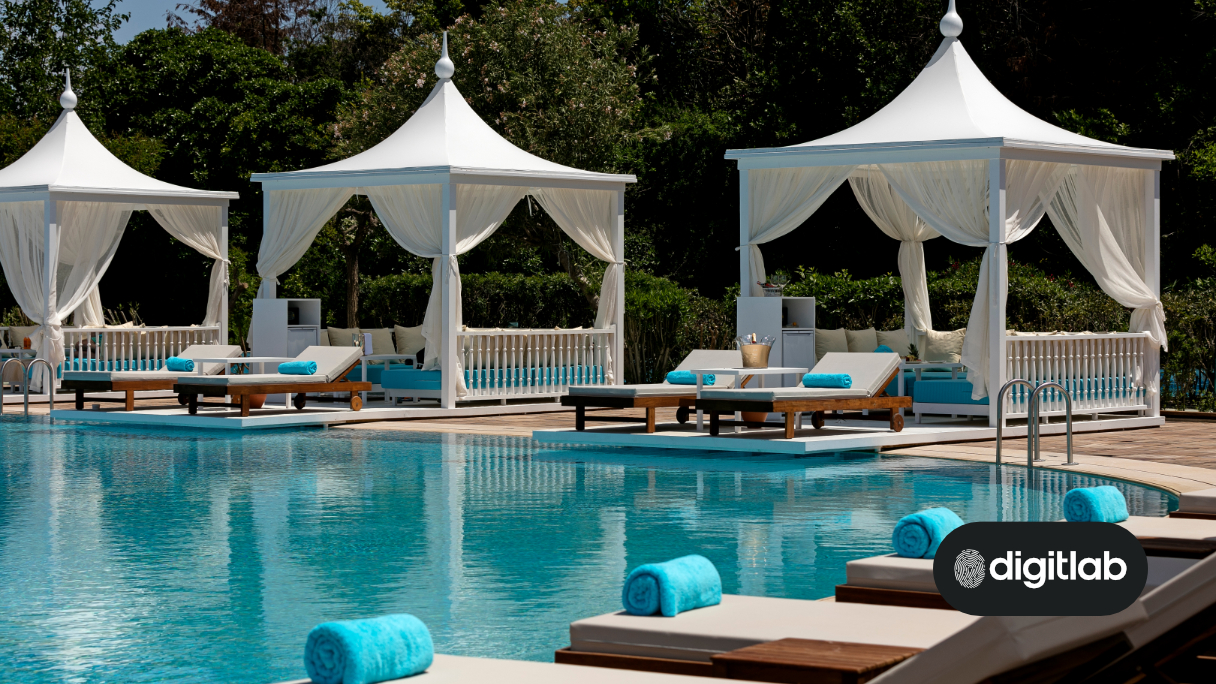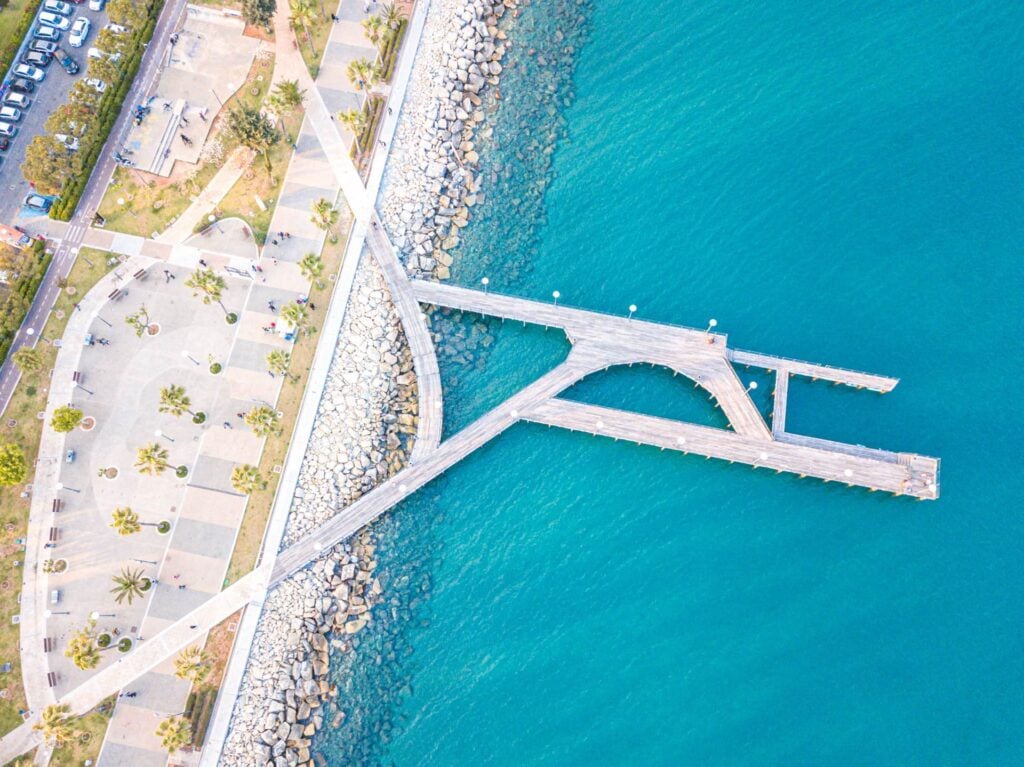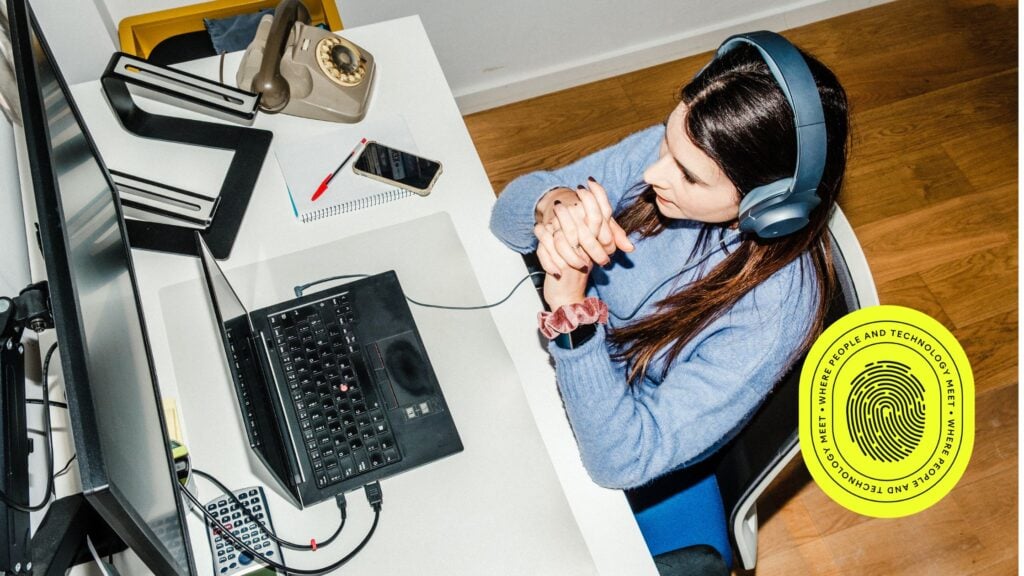Gone are the days when hotels could float on foot traffic and word of mouth alone. These are still very important ways to attract guests, but most hotels have realized that marketing is a must-have in today’s highly competitive hospitality industry. Here’s the question: what are the best marketing practices for hotels? Let’s look at how digital marketing can benefit a hotel, if traditional marketing is still relevant, and six best-practice hotel marketing activities to get more guests into your hotel rooms this year.
Will digital marketing benefit a hotel?
Implementing a hotel digital marketing strategy could be the best move your hotel makes this year. Your future guests are looking for places to stay while on holiday or for business travel, and their investigation more often than not begins with a Google search. People turn to the internet for more and more solutions to their problems, and not having a presence online is a massive disadvantage for any hotel or accommodation provider. So, how is digital marketing beneficial in the hospitality industry?
- Digital marketing is considerably cheaper than alternative marketing
- Digital content can be shared and experienced across multiple touchpoints
- Creating and advertising digital marketing content online takes less time
- Digital marketing facilitates two-way communication
- Digital marketing allows hotels to target specific demographics and geographic areas
- Digital Marketing allows to personalize and target the right audience
- Hotels can use digital marketing to monitor and address customer feedback and reviews
- Hotels can encourage guest to book directly on their website instead of on intermediaries
Is traditional marketing still relevant?
Just because digital marketing makes more sense than traditional marketing doesn’t mean that we should kill off the latter for good. Instead, the biggest brands understand that an integrated, hybridized approach can be extremely effective. Yes, people spend a lot of time in digital spaces like websites and social media platforms. But they also spend time out in the real world, passing billboards and lamp-post signs and shop signage. The idea is to craft one unified marketing message that can be translated across both digital and traditional marketing channels (if your budget allows for it).
Hotel marketing best-practices
1. Email marketing
If you correspond with guests via email, then you’ve likely got a large database of guest email addresses. If they have opted in to receive correspondence from your hotel, then you’ve got an immeasurably valuable direct marketing resource at your fingertips. Using bulk email platforms like Mailchimp or Mailerlite, your hotel can start sending personalized mailers directly to past guest inboxes. These can be pertaining to company updates, discounted per-night rates, promoting special events at the hotel, etc. You can also market your hotel by leveraging email signature marketing, giving you the chance to promote specific website pages or pieces of content through your staff’s email signatures.
Email Marketing is seeing a resurgence in its value in digital marketing. Marketers are starting to see the value in building databases of first-party data and being less reliant on social media platforms to access their customer bases.
2. Social media marketing
Who isn’t on at least one social media platform these days, right? Platforms like Facebook, TikTok, Twitter, LinkedIn, and Instagram have become valuable channels of communication for hotels, travel agents, and other businesses in the hospitality industry. They make community management easy, where hotel staff can quickly and with little effort update their followers, push marketing messages, run competitions, gather valuable client feedback, attract reviews, and process bookings – often all on a single platform. What’s more, most social media let users message hotels directly, and two-way instant communication can be initiated without having to rely on slower legacy communication options like email or telephone.
3. Infuencer Marketing
Social influencer platforms and influencers themselves have had a significant impact on the hotel marketing industry. Countless hotels and holiday resorts now leverage influencer marketing to promote their properties and attract new guests. Influencers are effective in reaching a targeted audience and promoting a hotel’s unique features, amenities, and overall guest experiences.
Influencer marketing can also showcase the local area and activities, which can help to attract more guests to the hotel. Additionally, partnerships with influencers can generate user-generated content, which can be repurposed by hotels on their social media channels and even on their websites.
It’s important to make sure that any influencer marketing campaign is authentic and discloses any commercial relationship between the hotel and the social influencer. Social media platforms have regulations and guidelines around sponsored content, and hotels need to be aware of these when working with influencers.
The most effective influencer channels for hotels are those with large, engaged audiences that are interested in travel and tourism. Some popular influencer channels in the hospitality industry include:
- Instagram
Many hotels and tourism companies are using Instagram to showcase their properties and destinations through beautiful photography and videos. - YouTube
Travel vloggers and influencers use YouTube to share detailed reviews and travel guides of iconic hotels, breath-taking destinations, and memorable travel experiences. - Blogs
Some influencers in the hospitality industry maintain travel blogs. These can be a great way for hotels and tourism companies to reach a specific audience. - TikTok
Many hotels and tourism companies use TikTok to showcase their properties and destinations, creating brand awareness through influencers with diverse audiences.
Keep in mind that the most effective channel will depend on your target audience and the goals you’ve set for your hotel marketing campaign.
4. Search engine marketing
If your hotel has a website, search engine marketing is what will get it onto the first page of Google, Yahoo, Bing and other internet search engines. When potential hotel guests use their internet browser to search for accommodation, studies have shown that they are most likely to click on one of the first three results. Hardly ever do they scroll further than the last result on page one, unless they really can’t find what they’re looking for. Search engine marketing is the process of using activities like search engine optimization (SEO) on a website to get its pages as high on the search engine results pages (SERPs) as possible.
5. Pay-per-click marketing
Pay-per-click (PPC) hotel marketing is self-explanatory: a hotel uses a platform like Google Ads or Social Media Ads to promote marketing content and adverts on search engines like Google, as well as websites that show third-party ads. When an interested customer clicks on your advert, they are taken to your website and you get charged for that click. And that’s where PPC marketing’s job ends – converting that person who clicked into a paying guest depends on their experience once landing on your website. But attracting users to your hotel website is half the battle, and it’s made simple with pay-per-click marketing.
6. Google Integration
Hotels should consider integrating Google services into their digital marketing strategy because it can greatly enhance their online visibility and reach. By utilizing Google My Business, hotels can optimize their online listing and make it easier for potential guests to find them through search engines and Google Maps. Additionally, Google Analytics can be used to track and analyze website traffic, providing valuable insights into the effectiveness of their digital marketing efforts. Overall, integrating Google services can help hotels reach a wider audience and make more informed decisions about their digital marketing.
- Google Business Profile Manager
Hotels can create free listings on Google Business Profile Manager, which allows them to manage their presence on Google Search and Google Maps. These can provide information like the hotel’s address, telephone numbers, website links, guest reviews, and operating hours.
- Google Hotel Ads
Hotels wanting to leverage the power of Google can also look into Google Hotel Ads, which allows them to advertise their accommodation options on Google Search, Google Maps, and Google Hotel Search. - Google Reviews
Accommodation is often made or broken by the opinions of past guests. Hotels can encourage guests to leave reviews on Google, which can help to improve the visibility of their listings on Google Search and Google Maps. - Google Maps
Want an interactive way for guests to find out where your hotel is located? Hotels can integrate Google Maps onto their websites, and use the platform for location discovery and to help potential guests find directions to their property.
- Google Analytics
A big part of digital marketing success is measuring what’s working and what isn’t. Hotels can use Google Analytics to track the performance of their hotel websites and measure the impact of their online marketing campaigns.
- Google Tag Manager
Hotels can use Google Tag Manager to manage and deploy marketing and analytics tags on their website. This involves adding a line of code to a hotel website that can be used for remarketing (marketing to people who’ve visited your website before) purposes in pay-per-click advertising campaigns.






